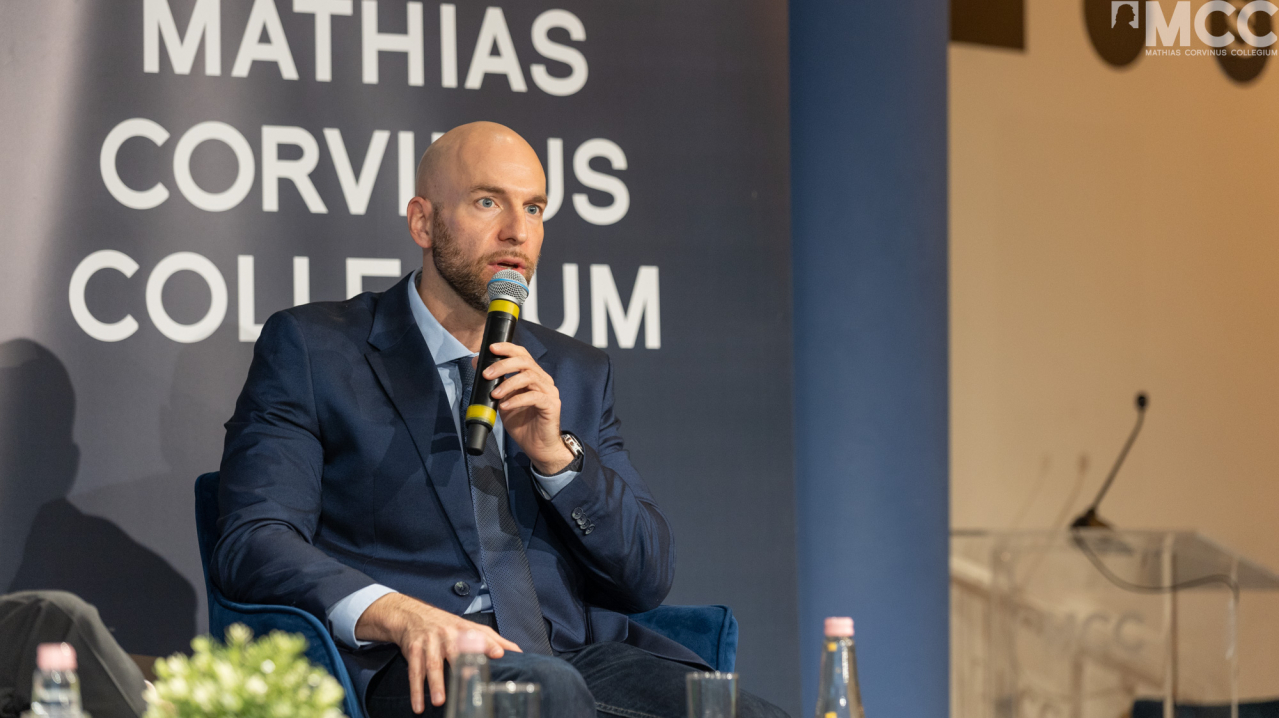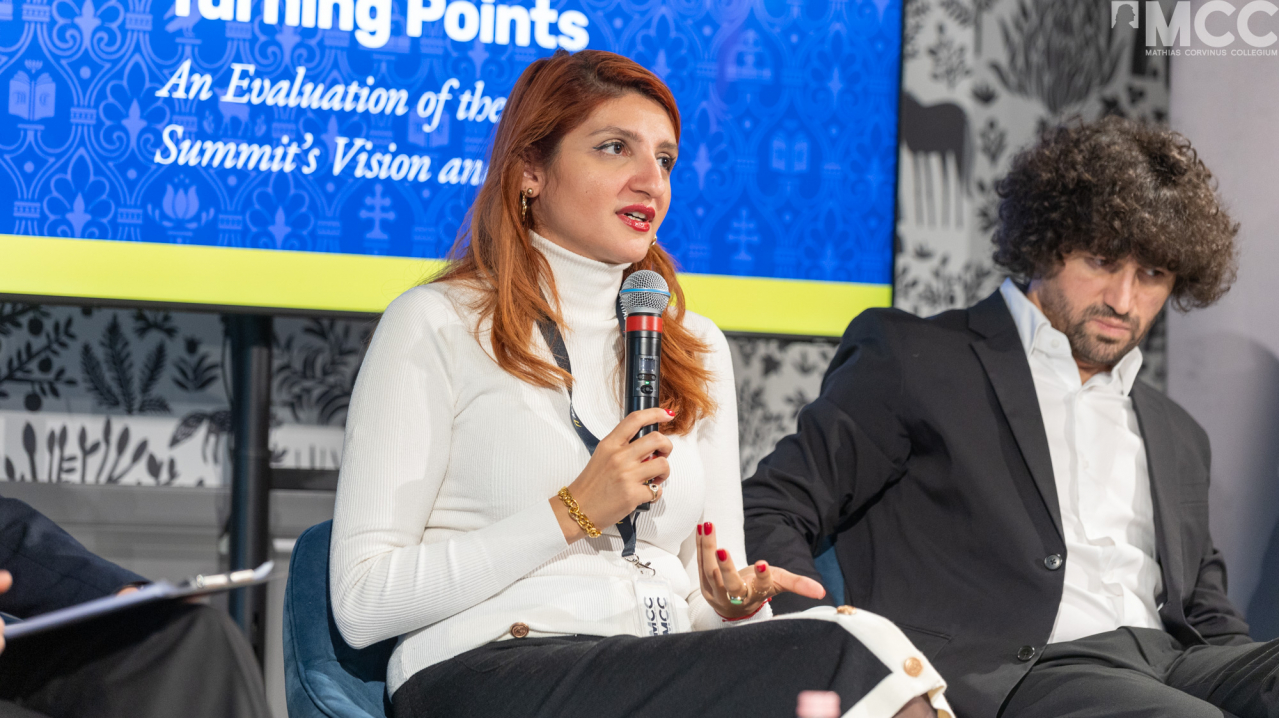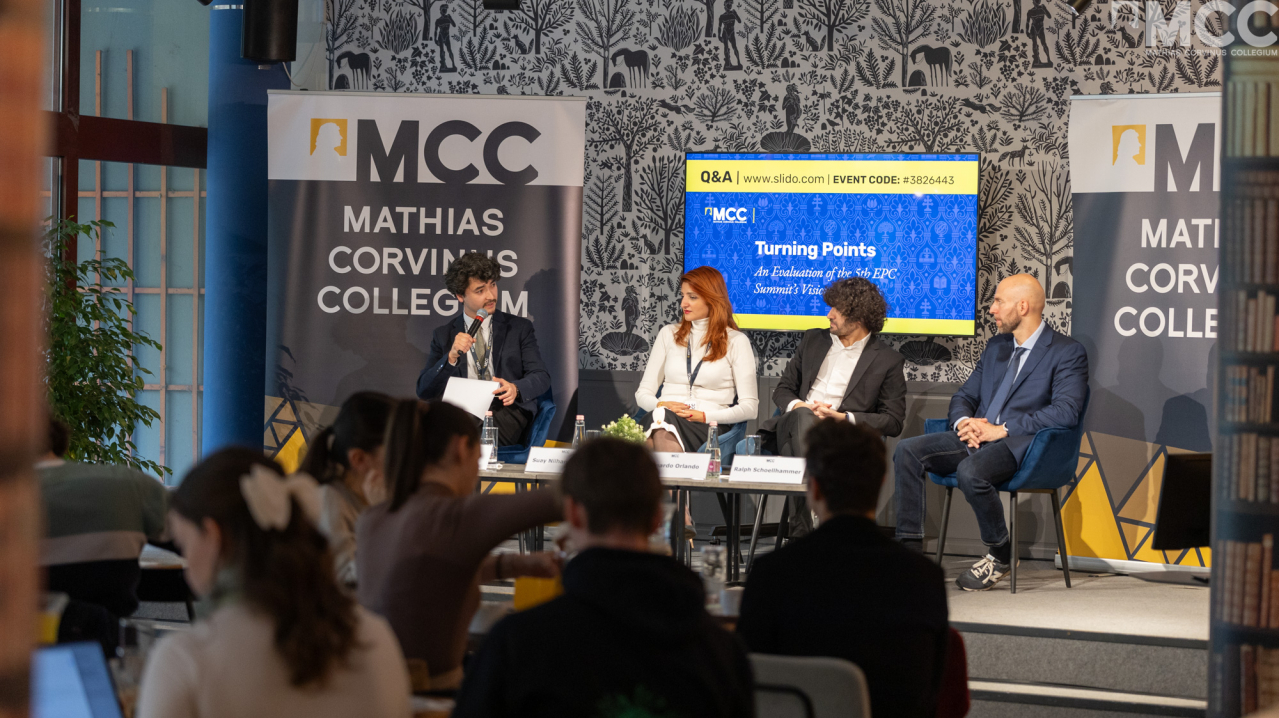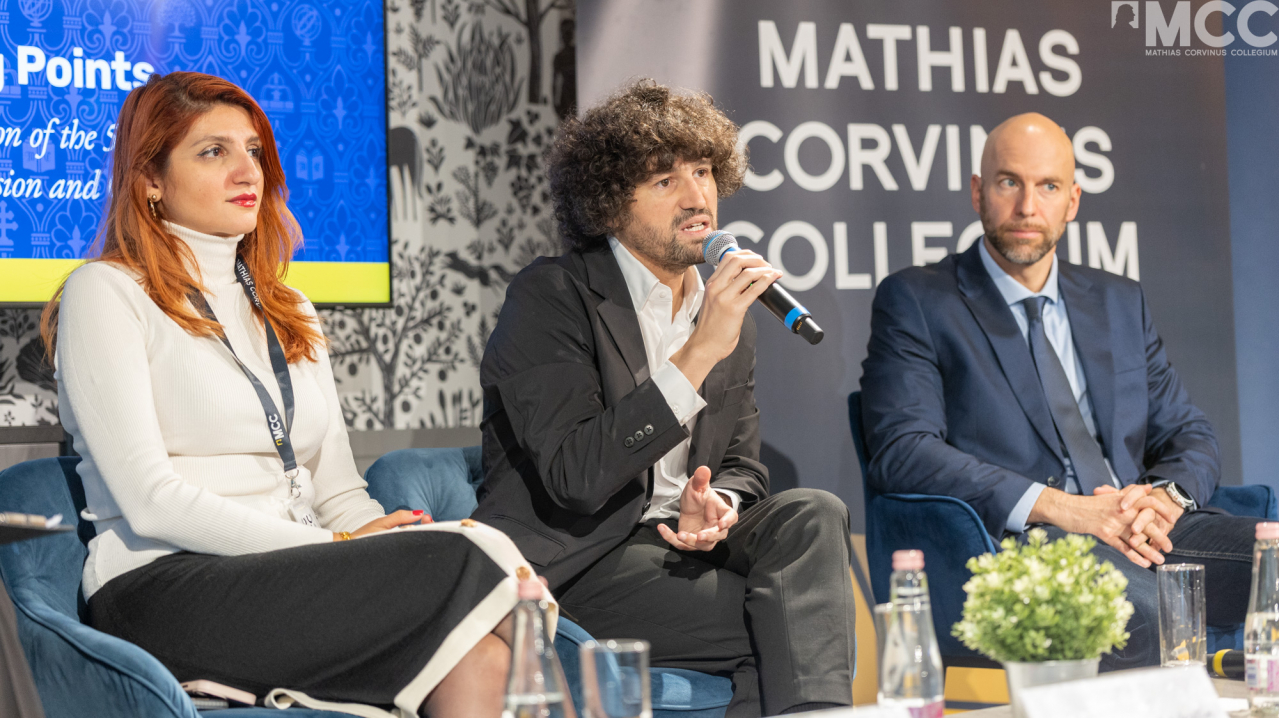Reading time: 2 minutes
Yesterday, we were proud to host an insightful event, "Turning Points: An Evaluation of the 5th EPC Summit’s Vision and Goals," where experts came together to discuss the pressing challenges facing Europe. The event, inspired by the recent EPC Summit held in Hungary, brought together thought leaders to reflect on its outcomes and explore solutions in the areas of security, migration, and regional cooperation.
The panel featured distinguished experts, including MCC Visiting Fellows Şuay Nilhan Açıkalın and Leonardo Orlando, and Ralph Schoellhammer, Head of the Center for Applied History and International Relations Theory at MCC. The discussion was moderated by Damille Devenyi, who guided the conversation through these complex and pressing issues.
Leonardo Orlando emphasized the increasing focus on security at the EPC Summit, particularly in light of the ongoing war in Ukraine. He highlighted the Summit’s role as a critical forum for dialogue, even though it lacks regulatory power.
Şuay Nilhan Açıkalın highlighted Türkiye’s vital role in energy security and migration management. She noted how Türkiye’s participation, after a two-year absence, underscored Hungary’s significant role as host, which was instrumental in securing President Erdoğan’s attendance.
Migration remained a contentious and polarizing topic throughout the discussion. Ralph Schoellhammer explored its societal and cultural impacts, using Austria as a case study to demonstrate the challenges of integration. He argued that Austria has adapted to the Arab world rather than vice versa, highlighting the complexities of large-scale migration.
Leonardo Orlando called for stronger integration policies, drawing lessons from successful immigration systems in the U.S. and Argentina. Şuay Nilhan Açıkalın shared Türkiye’s experience hosting over 3 million Syrian refugees, emphasizing that even shared cultural or religious ties do not guarantee seamless integration.
The ongoing Russia-Ukraine conflict was another key area of discussion. Şuay Nilhan Açıkalın noted the contrast between Hungary and Türkiye’s advocacy for peace and the stance of other European nations, often influenced by U.S. foreign policy. She also raised concerns about the potential for a new migration crisis stemming from instability in the Middle East.
Ralph Schoellhammer praised Hungary’s presidency for prioritizing the EPC Summit and facilitating critical discussions on security and migration. He observed a shift in European politics, describing it as a societal pendulum swinging back towards addressing practical concerns like migration and security.



